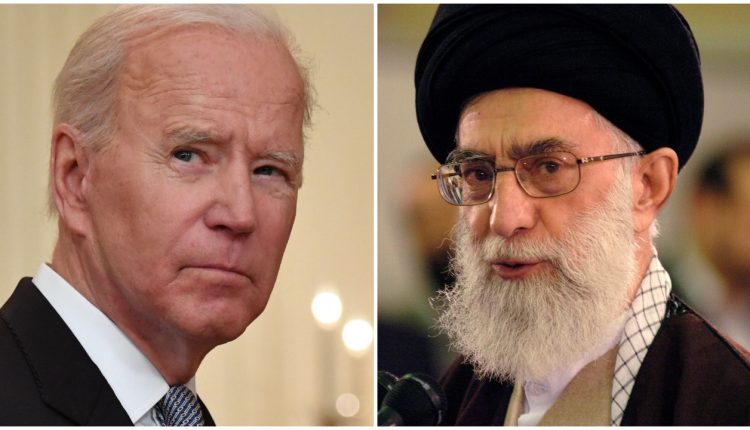FIRST ON FOX: House Republicans, led by Rep. August Pfluger, R-Texas, are introducing legislation that would stop the release of $6 billion in frozen funds to Iran in the wake of the Iran-backed Hamas terror attacks on Israel.
The legislation would essentially re-freeze the $6 billion in Iranian funds that were released as a part of a prisoner swap. The deal created a blanket waiver to transfer the funds from South Korea to Qatar without fear of violating U.S. sanctions. Administration officials say the funds can only be used for “humanitarian needs like food and medicine.”
“A month ago on the anniversary of 9/11, the Biden administration unfroze $6 billion and made it available to Iran — the world’s largest state sponsor of terror — while Iran was helping Hamas plan the horrific terror attacks on Israel,” Pfluger said in a statement. “This $6 billion will be used to backfill the money that Iran is paying to Hamas if we don’t act.”
The unfreezing of the money took place nearly a month before Hamas terrorists launched a massive, deadly attack on Israel over the weekend. Republicans have focused on the money as a way that the U.S. may be enabled Iran to support the Hamas attack. It is a claim that the Biden administration has repeatedly rejected.
REPUBLICANS, SOME DEM HOUSE LAWMAKERS URGE BIDEN TO REFREEZE $6B IN IRANIAN ASSETS
“Let’s be clear: the deal to bring U.S. citizens home from Iran has nothing to do with the horrific attack on Israel. Not a penny has been spent, and when it is, it can only go for humanitarian needs like food and medicine. Anything to the contrary is false,” State Department spokesperson Matt Miller said on Saturday.
A State Department spokesperson said that the money in the accounts in Qatar “remains in Doha.”
“Not a penny has been spent, and it will never go to Iran — it can only be used for future humanitarian-related purposes. Any suggestion to the contrary is false and misleading,” they said.
Meanwhile, the White House said that nothing has been allocated “and we’re going to watch it.”
But Republican critics have said that money is fungible and have kept up the pressure on the administration on the matter. On Thursday, multiple outlets reported that the U.S. had reached a “quiet understanding” with Qatar not to release any of the money to Iran. But Pfluger rejected that claim.
BIDEN ADMIN ‘UNEQUIVOCALLY’ CONDEMNS TERROR GROUP HAMAS, SAYS US ‘STANDS WITH ISRAEL’
“The administration’s supposed ‘quiet understanding’ with Qatar, who is also a host country of Hamas, is a disaster waiting to happen. Since the Administration refuses to permanently freeze the funds, Congress will,” Pfluger said.
The legislation would rescind the waiver used to transfer the funds and limit the president from using waiver authority to permit Iran from granting access to the accounts in the future.
REPUBLICANS BLAST BIDEN FOR RELEASING $6B IN FROZEN IRAN FUNDS AHEAD OF HAMAS ATTACK ON ISRAEL
The bill has 106 co-sponsors and is backed by the Republican Study Committee, with Chairman Kevin Hern, R-Okla, and Reps. Joe Wilson, R-S.C., and Mike Gallagher co-leading the legislation.
“The Biden Administration first downplayed Iran’s role in Hamas’ attacks and then, astonishingly, tried to claim the $6 billion they gave to Iran has nothing to do with it,” Hern said. “Appeasing Iran does not work, it just gives them more resources to finance terrorism against Israel and cause chaos in the region.”
He noted that Iran provides over $100 million a year to Hamas, and said that Congress must ensure Biden “does not follow through” with sending the money to Iran.
“As Chairman of the Republican Study Committee, I am co-leading this legislation and will work to get a vote on the House floor as soon as possible,” he said.
The bill comes after House China Committee Chairman Mike Gallagher led a bipartisan group of nearly 100 lawmakers urging Biden to refreeze the money. They pointed to remarks by Iranian President Ebrahim Raisi, who say that the funds would be used “wherever we need it.”
Fox News’ Brooke Singman contributed to this report.
Read the full article here

